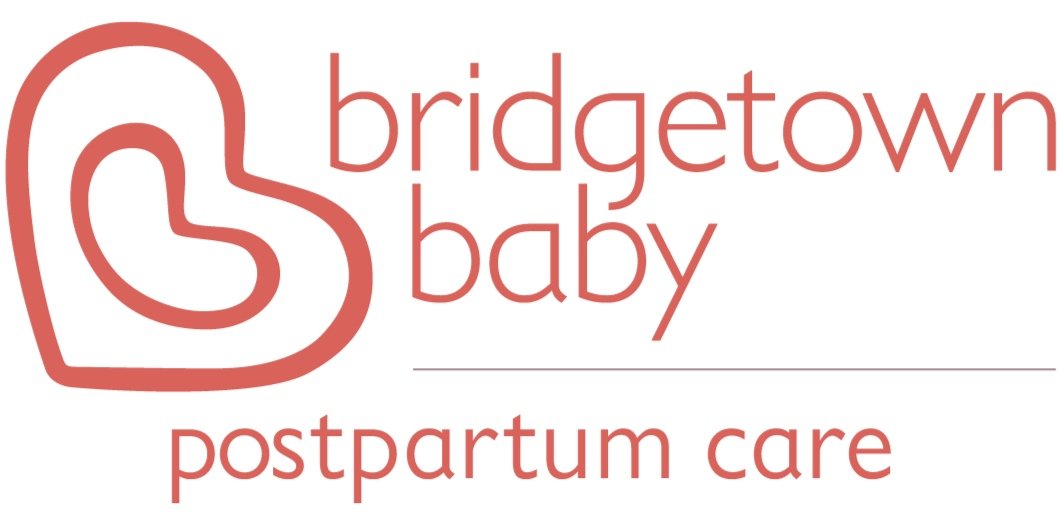How Much Do Doulas Cost? And How to Finance Doula Care
We are not meant to have babies in isolation. It is too much for two parents to manage taking care of themselves—especially with one person recovering from birth—while also caring for a newborn, and siblings. It’s even more overwhelming if you are a single parent or welcoming multiples.
In centuries past, and in some communities still today, extended family and neighbors filled this role. Today, most of us no longer live surrounded by family available to help with “all the things.” Postpartum doulas are the modern answer to the age-old question: who can care for a family with a newborn?
But how much do doulas cost? And how do families afford them?
High-quality in-person support can add up when you have support for several weeks or months (which, from a biological perspective, is normal and ideal).
Luckily, help is out there, and we’re about to walk through where you can find it, because everyone deserves support in the form of guidance and trustworthy information, a shoulder to cry on, and someone to hold the baby so you can shower, eat, and most importantly, sleep.
How much do doulas cost?
There’s no one-size-fits-all answer, but here’s what you can expect:
Hourly Rates: Most postpartum doulas charge between $45–$80 per hour.
Day vs. Night Care: Some doulas charge more for overnight visits than daytime hours.
Multiples: Supporting twins or triplets often comes with a higher rate due to the increased care needs.
Payment Methods: Some doulas charge a small additional fee for payments via credit card to cover processing costs.
At Bridgetown Baby, our postpartum doula care packages are designed to meet families where they are, with flexible scheduling and individualized support. Our Family Care team is available at care@bridgetownbaby.com—we’d love to support you & your family.
Typical Postpartum Doula Cost Breakdown
What should you expect to pay when it comes to postpartum doula care? Here’s a realistic example to answer the question “how much do doulas cost?”
Short-term support (20 hours): $1,000–$1,600
One month of care (60 hours): $2,700–$4,800
Three months of care (180 hours): $8,000–$14,000
It may sound like a significant investment—but many families report that doula care was the most valuable money they spent during the newborn phase.
“Armanthia saw our needs before I could find a way to fully explain them, then jumped in repeatedly to make sure they were taken care of. My body had the space it needed to begin healing because of her and she kept our home and children afloat. It was hard to see her go.” —Lisa Marie W., second time mom, & Bridgetown Baby Client, Vancouver, WA
Is Doula Care Worth the Cost?
Now you have the answer to “how much do doulas cost?” - so let’s explore whether the investment is worth it.
Parents often describe doula support as “life-saving” during the early weeks. Why? Because postpartum doulas don’t just help with baby care—they support the entire family’s transition.
Doulas can:
Help establish feeding (breast/chest or bottle)
Take some of the guesswork out of the question of what’s normal - and what might be of concern - with your baby
Provide guidance on soothing, diapering, swaddling, activities to do with baby, newborn sleep, and more
Cook simple, nourishing meals
Offer emotional support during hormonal shifts
Care for older siblings
Give parents time to rest and recover
Research suggests that families with postpartum doula care experience lower rates of postpartum depression, higher breastfeeding success, and more confidence in parenting.
When you think of doula care as an investment in health, recovery, and family well-being, the value is undeniable.
Postpartum doulas can support with many things to help you through the early weeks and months with your newborn
How to Finance Doula Care - 6 Strategies to Help
With the mounting cost of living, regardless of the benefits, not all families are able to pay for postpartum doula care out of pocket. Here at Bridgetown Baby our mission is to support as many families as we can during the postpartum phase. The good news is, there are many creative ways to finance doula care.
1. Insurance Coverage
Insurance coverage for doulas is growing.
In Oregon, the Momnibus bill recently passed, requiring insurance companies to cover birth doulas, 24 hours of postpartum doula care, and lactation support.
While it may take a few years to go into effect, this is a promising step toward broader access.
If you’re curious, ask your provider for a superbill (an itemized invoice with the right coding) to submit to insurance.
Click here to learn more about Bridgetown Baby lactation services, which may also be covered by insurance.
2. Doula Registry to finance Doula Care
Instead of a traditional baby shower registry filled with onesies and gadgets, some families choose a doula registry.
Doula agencies—including Bridgetown Baby—can create a personalized fund so friends and family can contribute directly to your care. This is especially helpful for loved ones who live far away and want to provide tangible support, but can’t fulfil the role themselves.
Here is an example of a past doula care gift registry that Bridgetown Baby created.
Doula care gift registries are also great for families having subsequent children who don’t need all the baby items - but really do need the extra support!
3. Health Savings Accounts (HSA) or Flexible Spending Accounts (FSA)
Many doula agencies—including Bridgetown Baby—can accept payment via HSA or FSA accounts. This allows you to pay with pre-tax dollars, effectively lowering your overall cost.
Ask your provider in advance if they accept this form of payment.
4. Employer Benefits to Pay for Doula Care (eg. Carrot Fertility)
Some employers now offer benefits that include doula support.
Carrot Fertility, for example, is offered by many tech companies. Carrot covers daytime and overnight doula care for the first six weeks postpartum—not just infertility care.
Some employers also provide childcare reimbursement stipends, which may be applied to doula services.
Doula tip: Even if your HR department doesn’t advertise it, it’s worth asking. Many employees don’t realize they already have coverage for doula care, and it goes unused.
Had I known about Bridgetown Baby Postpartum Doulas and the Carrot benefit with our first kid, we might be on our third by now!
Using Carrot to pay for doula support was a game-changer — Bridgetown Baby made it incredibly easy to hand over the necessary docs, and Carrot’s system was super straightforward.
Doula care can feel like a luxury, but this made it accessible — and honestly, after one night of restful sleep, my wife became a full-on evangelist for the entire concept. The warmth, professionalism, and pure human support we got made one of life’s hardest phases feel much more comfortable!
- Paul K, Father of Two
Some employers also offer a child care reimbursement benefit that provides a certain dollar amount for each day of care needed. This benefit can often be used to cover doula care as well. It’s a good idea to check with your employer.
5. Payment Plans to Finance Doula Care
Not every family can pay the full cost upfront. Fortunately, many doulas and agencies offer payment plans.
This might mean paying month-to-month or splitting costs into manageable installments.
At Bridgetown Baby, we believe every family deserves support, and we’re happy to discuss flexible arrangements.
6. Nonprofit & Community Funds
In Portland, we are fortunate to have the Portland New Family Fund (PNFF) which provides grants to cover birth and postpartum doula care for low-income families.
Ask your healthcare provider or doula if you might qualify for local programs or for a referral to PNFF. Many communities are creating similar nonprofit initiatives to expand access to doula care.
Five Essential Tips for New Parents
We created this guide to help parents simplify their to-do list around preparing for the fourth trimester, because we believe that a supported, restful postpartum experience brings lifelong benefits to parents and their children.
Frequently Asked Questions About the Cost and Financing of Doula Care
-
Yes. Because caring for multiples often requires additional expertise and energy, many doulas adjust their hourly rate accordingly.
-
Overnight doula shifts often range from $400–$800 per night, depending on hours and experience. This covers a full stretch of rest for parents. At Bridgetown Baby our daytime and night time rates are the same. A minimum night time visit lasts 10 hours.
-
Independent doulas may have lower hourly rates, however agencies often provide structured backup support and easy payment options (including HSA/FSA, employer benefits, and registries). The most important factor is choosing someone that you feel confident in.
-
Yes! Many families book a blend of birth doula, postpartum in-home doula care, lactation support, and virtual postpartum groups to get the most comprehensive support.
Explore our parenting classes & groups to see additional options. If you’re looking for a birth doula, get in touch & we’ll be happy to recommend a trusted colleague.
So, in summary—how much do doulas cost & how can you make it work for you & your family?
The short answer: postpartum doulas typically $45–$80 per hour, with packages ranging from a few hundred dollars to over $10,000 depending on the duration of care.
The longer answer: it depends on how you choose to manage your postpartum experience, and what your priorities are.
Parents often say that doula care was the single best investment they made in their family’s well-being, like Sheena:
“As new parents with twins we can't say enough good things about the Bridgetown baby team. They are kind, flexible, supportive. They go with the flow of what you need - from tips to simply giving you alone time and a night of amazing sleep. Waking up to sleeping fed swaddled babies, a cooked breakfast, coffee, clean washing, dishwasher running, formula made up and even well loved pets made us want to keep them forever!”
—Sheena P., mom to twins
So what do you really need to know about how much doulas cost & whether you can afford postpartum doula care for your family?
Although the question “how much do doulas cost?” might be quick to answer, how to make it possible for you & your family to access the finances to cover the postpartum support you need can sometimes be more complex.
Regardless of your financial situation, we believe everyone deserves support in the form of guidance and trustworthy information, a shoulder to cry on and someone to hold the baby so you can shower, eat and most importantly… sleep.
Whether you use insurance, registries, employer benefits, or payment plans, there are many ways to make postpartum doula support work financially for your family.
At Bridgetown Baby, we’ve helped over 1,000 Portland families ease into parenthood with strength and confidence by providing informational, emotional and physical support. Each visit is customized to your ever-changing needs so you can ease into parenting well rested and confident. If you’re considering doula care, we’d love to connect.
Get in touch with us today at care@bridgetownbaby.com to learn more about our postpartum doula services, and the financial support that may be available for you and your family.
About the Author:
Merriah Fairchild is the Founder of Bridgetown Baby in Portland, OR. Merriah and the Bridgetown Baby team have helped over 1,000 postpartum families ease into their new life with strength and confidence. Bridgetown Baby affiliated award-winning doulas and lactation consultants specialize in inclusive postpartum services; in-home doula care, lactation support, parenting classes & support groups. Get in touch at care@bridgetownbaby.com
Information provided in the blog is for educational purposes only and does not substitute for professional medical advice. For more information, please see our disclaimer.




